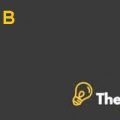Mount Everest—1996 Case Solution
Problem Identification:
Rob Halls and Scott Fischer formed a group to climb over Mount Everest. However, there was substantial risk involved in climbing the Everest as this task required experience and expertise to accomplish it. The over confidence of the leaders over their skills and experience restricted them from thinking about the risks and mischief involved in climbing Everest. In addition, the clients that both the team chose lacked experience and physical skills, which could not enable them to accomplish the climb successfully. Furthermore, the teamwork and communication were not adequate due to which the coordination was not developed between both the teams.In addition to this,the clients lacked radios due to which they couldn’t coordinate with each other. Moreover, the adverse conditions of weather also contributed in making the situation more complex and difficult.
Analysis:
The two teams were engaged in the business to train the clients for climbing Everest. Both the leaders had already climbed over the Everest.However, their over confidence led them to face huge difficulties. Rob Hall was the owner of Adventure Consultant. Rob Hall climbed Everest four times and had the largest team of clients. Rob Hall together with his partner,guided the clients to climb the Everest successfully. On the other hand, another team that was involved in climbing the Everest that was led by Scott Fischer, who had a similar experience in climbing the Everest, just like Rob Hall.
However, the main problem with both the teams was that they were guiding inexperienced climbers and were not even concerned about this. Furthermore, the guide that they recruited didnot share the same experience and skills due to which they found certain difficulties. In addition to this, there was lack of effective planning present in the team and the members and the leaders them selves were not physically and mentally prepared. Moreover, Fischer didn’t complete his logistical arrangements before arriving due to which he couldn’t get involved in the team and got physically exhausted. The members of both the teams also lacked the physical skills and experience required from climbing the mountains.
Furthermore, it is considered that both the leaders should have studied the weather conditions to schedule the event according to the weather since the adverse weather conditions contributed in making the event unsuccessful. The event lacked effective coordination, the members of both the teams were complete strangers and they could not find the time to spent with each other; thus, they were unable to develop the relationship of trust and understanding due to which both the members and the leaders faced difficulties while climbing the Everest. Moreover, there should have been rules defined to the members of teams and the leaders should have ensured that the rules were being followed by the members. However, there was stubbornness seen in the members, particularly among the team members of Scott Fischer. Therefore, it is considered that the before executing the events, the leaders of the team should attempt to take major precautions in order to avoid the risks and difficulties associated with climbing a mountain like Everest.
Alternatives:
Set Strict Criteria:
The first alternative available to the trainers and guiders in order to avoid difficulties is that every client should pass a physical exam specifically designed for the course before being permitted to climb the mountains. The trainers may develop strict schedules to examine their physical and mental capabilities in order to allow them to climb. This would help to avoid the difficulties and risks while climbing the mountain....................
This is just a sample partial case solution. Please place the order on the website to order your own originally done case solution.













